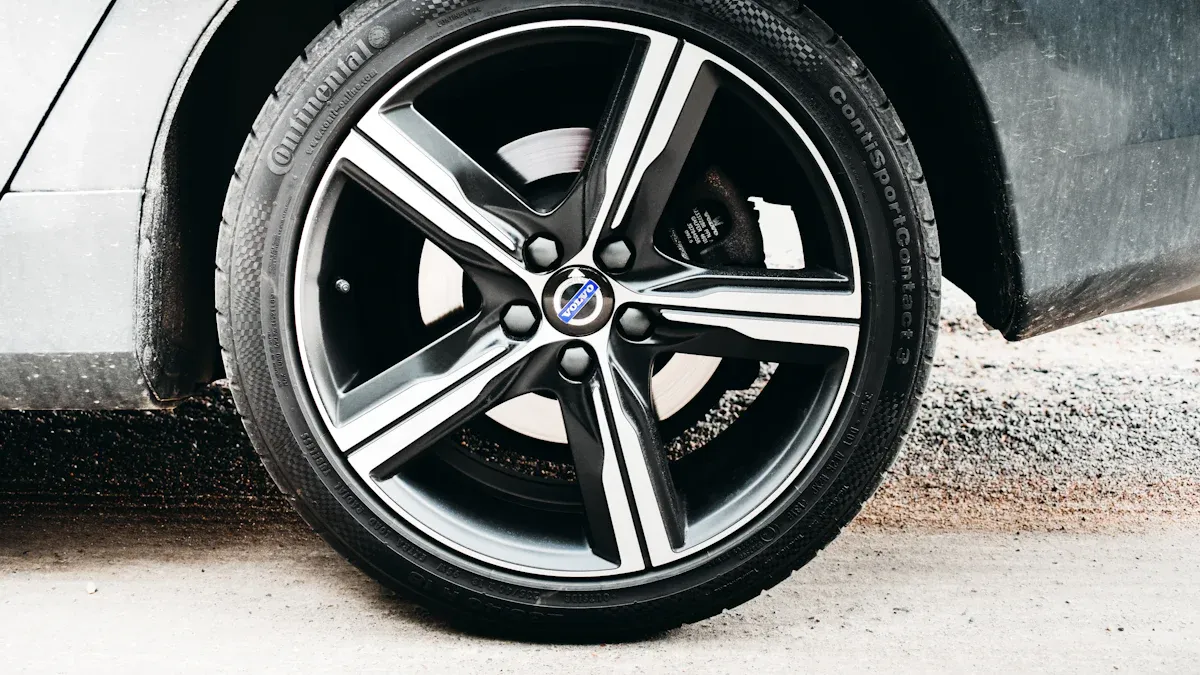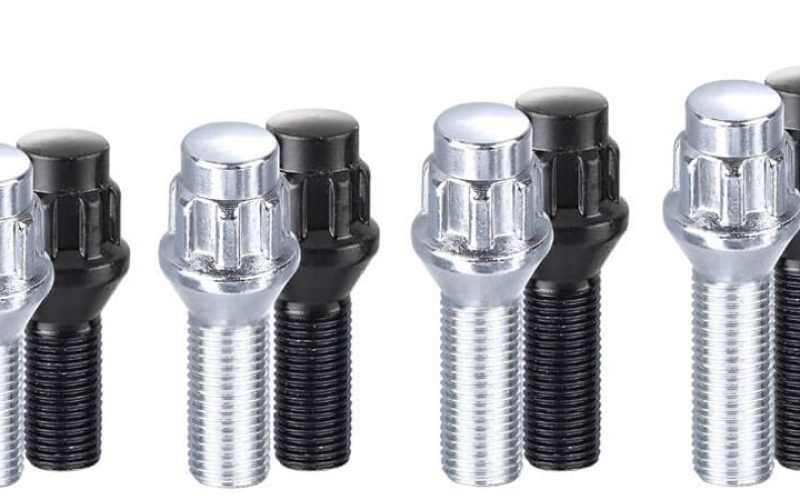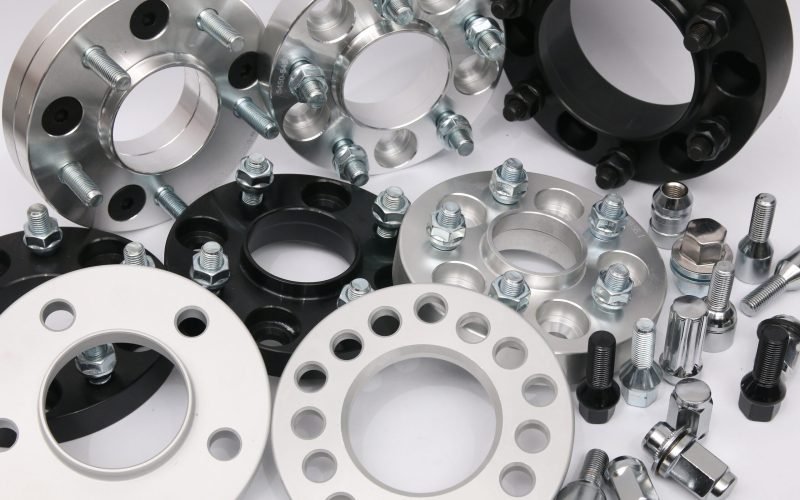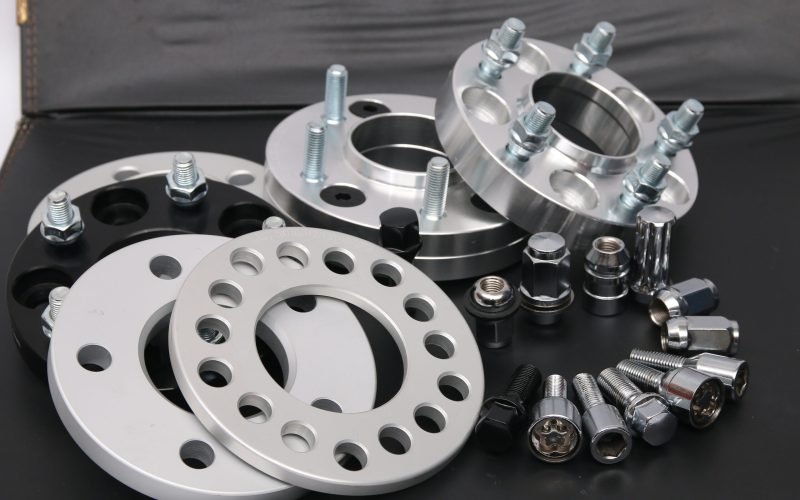

admin1
May 5, 2025
How the Weight of Wheel Influences Fuel Efficiency and Safety

The weight of wheel directly impacts how your vehicle performs on the road. A lighter wheel reduces strain on the engine, improving fuel efficiency and enhancing overall performance. Heavier wheels, however, can slow you down, making your car less responsive and harder to handle. Studies show that lighter vehicles, including their wheels, reduce crash fatalities. This highlights a clear link between lighter wheels and improved safety. By understanding this connection, you can make smarter choices to boost your car’s efficiency and ensure safer driving conditions.
What Is the Weight of Wheel and Why Is It Important?
Defining wheel weight and its significance
The weight of a wheel refers to the mass of the wheel itself, including its material composition and design. It plays a crucial role in how your vehicle performs, influencing fuel efficiency, handling, and safety. Different materials used in wheel weights have varying densities and environmental impacts, which affect their suitability for specific applications.
| Material | Density | Environmental Impact | Size |
|---|---|---|---|
| Lead | High | Toxic, banned in many states | Smaller weight possible |
| Zinc | Medium | Under review for impact | Larger weight required |
| Steel | High | No known issues | Standard size, better balance |
Choosing the right material for your wheel weight ensures optimal performance while minimizing environmental concerns. For example, steel offers better balance and durability, making it a popular choice for modern vehicles.
The role of unsprung weight in vehicle dynamics
Unsprung weight refers to the components of your vehicle not supported by the suspension, such as wheels, tires, and brakes. This weight directly affects how your vehicle handles bumps, corners, and uneven surfaces. Lighter unsprung weight improves suspension response, allowing your car to glide smoothly over rough roads. Heavier unsprung weight, on the other hand, can reduce ride comfort and increase wear on suspension components.
By reducing unsprung weight, you enhance your vehicle’s stability and handling. This improvement translates to better control during sharp turns and sudden maneuvers, ensuring safer driving conditions.
How wheel weight influences overall vehicle performance
Wheel weight impacts several aspects of your vehicle’s overall performance. Lighter wheels reduce rotational inertia, enabling quicker acceleration and shorter braking distances. Performance tests have demonstrated the importance of wheel weight in key metrics:
- Lap Times: Lighter wheels help vehicles complete circuits faster by improving speed and agility.
- Acceleration Times: Reduced wheel weight allows your vehicle to reach higher speeds in less time.
- Braking Distances: Lighter wheels decrease stopping distances, enhancing safety during emergency braking.
Optimizing wheel weight not only boosts efficiency but also ensures your vehicle performs at its best in critical situations. Whether you’re navigating city streets or tackling winding roads, lighter wheels provide a noticeable advantage.
The Connection Between Wheel Weight and Fuel Efficiency

The effect of heavier wheels on rolling resistance
Heavier wheels increase rolling resistance, which directly impacts your vehicle’s fuel efficiency. Rolling resistance refers to the energy lost as your tires deform and recover while in motion. When wheels are heavier, they exert more pressure on the tires, causing greater deformation. This leads to higher energy consumption as your engine works harder to overcome the resistance.
Research shows that even small changes in tire tread depth can significantly affect rolling resistance. For instance:
| Evidence Description | Key Findings |
|---|---|
| Reduction in tread depth | A reduction of 2/32 inch in tread depth correlates with a 10% reduction in rolling resistance when tires are new. |
| Rolling resistance decline | New tires typically see a 20% or more decline in rolling resistance as tread wears down. |
| Tread influence | The tread significantly affects rolling resistance due to hysteretic energy loss, linking traction and wear characteristics to rolling resistance. |
By switching to lightweight wheels, you can reduce the strain on your tires, lower rolling resistance, and improve fuel economy. This simple change can make a noticeable difference in your vehicle’s efficiency.
Rotational inertia and its impact on fuel consumption
Rotational inertia is another critical factor influenced by wheel weight. It refers to the resistance of an object to changes in its rotational motion. Heavier wheels have higher rotational inertia, requiring more energy to accelerate or decelerate. This increased energy demand translates to higher fuel consumption.
Studies highlight the significant impact of rotational inertia on fuel efficiency:
- Reducing the wheel’s mass and rotational inertia can lead to substantial energy savings.
- A decrease in the wheel’s total kinetic energy by (frac{13}{50} KE_{T1}) can potentially improve fuel efficiency.
- The total kinetic energy of the four wheels accounts for 7.15% of the total kinetic energy of the vehicle.
For example, calculations using the Volkswagen ID.3 demonstrate how increased wheel weight contributes to higher fuel consumption. By opting for lightweight wheels, you can minimize rotational inertia, conserve energy, and reduce fuel costs.
Examples of fuel efficiency improvements with lighter wheels
Switching to lightweight wheels offers tangible benefits for fuel efficiency. A reduction of just 82 lbs in wheel weight can deliver the same performance improvements as a 132 lb reduction in total vehicle weight. This highlights the outsized impact of wheel weight on fuel economy.
Case studies further illustrate these benefits:
| Benefit | Description |
|---|---|
| Fuel Savings | Reducing a truck’s overall weight by 300 kilograms can save 900 to 1500 liters of diesel annually. |
| CO2 Emissions | Fuel savings contribute to a direct drop in carbon emissions, aiding sustainability targets. |
| Higher Payload | Lighter wheels allow trucks to carry more cargo within legal weight limits, increasing revenue. |
| Prolonged Tire and Brake Life | Lower rotational mass reduces strain on axles, brakes, and suspension, yielding long-term savings. |
These examples demonstrate how lightweight wheels not only improve fuel efficiency but also enhance overall vehicle performance and sustainability. By making this upgrade, you can enjoy long-term savings and a smoother driving experience.
How Wheel Weight Impacts Vehicle Safety

Braking performance and the influence of wheel weight
The weight of your wheels plays a critical role in how effectively your vehicle can stop. Heavier wheels increase the rotational inertia, meaning your brakes must work harder to slow them down. This added strain can lead to longer stopping distances, especially during emergency braking situations. On the other hand, lighter wheels reduce this inertia, allowing your brakes to respond more quickly and efficiently.
Studies have shown that while heavier vehicles may sometimes offer safety benefits, such as reduced crash fatalities in older models, this relationship is not consistent across all vehicles. For newer models, like those from 2018-2019, the correlation between weight and safety diminishes. This suggests that optimizing wheel weight, rather than relying on overall vehicle weight, can significantly enhance braking performance and safety.
By choosing lighter wheels, you can improve your vehicle’s braking system, ensuring quicker stops and reducing the risk of accidents. This simple adjustment can make a big difference in critical moments on the road.
Handling, stability, and the risks of heavier wheels
Wheel weight directly affects how your vehicle handles and stays stable, especially during sharp turns or sudden maneuvers. Heavier wheels increase unsprung weight, which reduces your suspension’s ability to absorb shocks from uneven roads. This can make your vehicle feel less stable and harder to control, particularly at higher speeds or on rough terrain.
Tests simulating frontal impacts on wheel structures reveal that the material and design of your wheels significantly influence their performance. For example:
| Material | Spokes | Thickness (mm) | Displacement (mm) | Safety Factor |
|---|---|---|---|---|
| Magnesium | 5 | 15 | 4.061 | 9.367 |
| Steel Alloy | 6 | 20 | 0.275 | 14.52 |
| Aluminum | 6 | 20 | – | 14.52 |
These findings highlight the importance of selecting wheels with the right material and design to maintain stability and safety. Lighter wheels, such as those made from magnesium or aluminum, can improve your vehicle’s handling by reducing unsprung weight. This gives you better control and a smoother driving experience, even in challenging conditions.
The role of wheel weight in tire wear and traction
Your tires are the only part of your vehicle that makes direct contact with the road, and their performance depends heavily on wheel weight. Heavier wheels put more pressure on your tires, causing them to wear out faster. This not only increases your maintenance costs but also reduces traction, making it harder for your vehicle to grip the road.
Traction is crucial for safe driving, especially in wet or icy conditions. When your tires lose traction, your vehicle becomes harder to control, increasing the risk of skidding or accidents. Lighter wheels help distribute weight more evenly across your tires, reducing wear and improving traction. This ensures that your vehicle maintains a strong grip on the road, even in less-than-ideal conditions.
Additionally, impact tests show that tire performance significantly influences safety outcomes. For instance:
| Test Type | Key Findings |
|---|---|
| 90° Impact Test | Simulates frontal impact on wheel structure; maximum deformation error of 7.04%. |
These results emphasize the importance of maintaining proper tire and wheel balance. By opting for lighter wheels, you can extend the life of your tires, improve traction, and enhance overall safety.
Practical Tips for Managing Wheel Weight
Selecting the right wheels for your vehicle
Choosing the right wheels for your vehicle is essential for optimizing performance and safety. Start by checking your vehicle’s manual for recommended load ratings and wheel specifications. This ensures compatibility and prevents overloading, which can lead to structural damage. Regularly inspect your wheels for wear and balance to maintain their efficiency.
Reducing unsprung weight, even slightly, can significantly improve handling and braking. Lightweight wheels, such as lightweight utv wheels, reduce the load on your suspension and brake system. This leads to better acceleration and shorter stopping distances. Heavy wheels compromise performance and increase strain on critical components. By selecting wheels designed for your vehicle, you can enjoy smoother rides and enhanced fuel efficiency.
The importance of wheel balancing and maintenance
Proper wheel balancing is crucial for maintaining your vehicle’s performance and safety. When wheels are balanced correctly, they reduce rolling resistance, improving fuel efficiency and extending tire life. Ignoring tire imbalance can result in driver discomfort, irregular tire wear, and lower fuel economy.
Regular tire balancing ensures a smoother ride and enhances the longevity of your tires. It also reduces uneven tread wear, saving you money on replacements. For example, balanced wheels distribute weight evenly across your tires, preventing premature wear and improving traction. This simple maintenance step keeps your vehicle running efficiently and safely.
When to consider upgrading to lighter wheels
Upgrading to lighter wheels can transform your driving experience. Lightweight utv wheels, for instance, offer improved fuel efficiency by reducing the overall weight of your vehicle. They also enhance safety in harsh conditions, such as severe weather, by minimizing tire failures.
Consider upgrading when your current wheels show signs of wear or fail to meet your performance needs. High-quality wheels designed for your vehicle can increase load capacity without sacrificing stability. They also extend tire life by providing better support and reducing uneven wear. Experts recommend choosing wheels compatible with your vehicle model and maintaining them regularly to ensure optimal performance.
Switching to lighter wheels is especially beneficial for long-haul trucks, construction vehicles, and logistics fleets. These upgrades deliver better fuel efficiency, increased safety, and long-term savings. By investing in lighter wheels, you can enjoy a more reliable and efficient driving experience.
The weight of your wheels directly affects how efficiently your vehicle performs and how safe it is on the road. Lighter wheels reduce strain on your tires, improving fuel economy and extending their lifespan. They also enhance handling, giving you better control during sharp turns or sudden stops. By choosing lighter wheels, you can reduce wear on critical components and enjoy a smoother driving experience.
Upgrading your wheels is more than a performance boost—it’s an investment in safety and savings. Make the switch to lighter wheels and see the difference in how your tires grip the road and how much fuel you save.
Understanding the impact of wheel weight empowers you to make smarter decisions for your vehicle. Take control of your driving experience by managing wheel weight effectively.
FAQ
What are the benefits of switching to lighter wheels?
Lighter wheels improve fuel efficiency, enhance handling, and reduce wear on tires and brakes. They also increase safety by shortening braking distances and improving traction. Upgrading to lighter wheels is an investment in better performance and long-term savings.
How can I tell if my wheels need balancing?
Unbalanced wheels cause vibrations, uneven tire wear, and reduced fuel efficiency. If you notice shaking while driving or uneven tread patterns, it’s time to balance your wheels. Regular maintenance ensures smoother rides and extends tire life.
Are lightweight wheels durable enough for daily use?
Yes, lightweight wheels made from high-quality materials like aluminum or magnesium offer excellent durability. They withstand daily wear and tear while improving performance. Choosing wheels from trusted manufacturers ensures reliability and safety for everyday driving.
Will lighter wheels affect my vehicle’s load capacity?
Lighter wheels reduce unsprung weight without compromising load capacity. They allow your vehicle to carry more cargo within legal limits. This makes them ideal for trucks and fleets, boosting efficiency and revenue.
How often should I inspect my wheels for wear?
Inspect your wheels every six months or during routine maintenance. Look for cracks, dents, or signs of imbalance. Regular checks prevent costly repairs and ensure optimal performance on the road.





